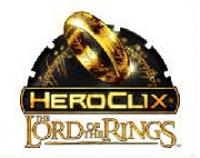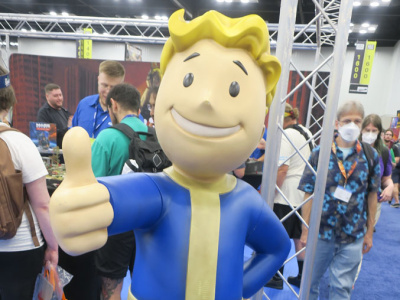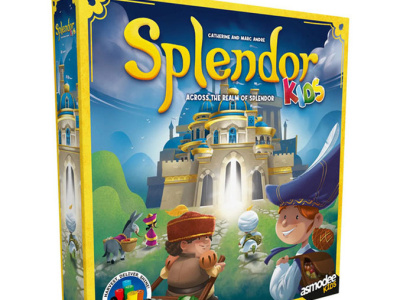 Rolling for Initiative is a weekly column by Scott Thorne, PhD, owner of Castle Perilous Games & Books in Carbondale, Illinois. This week, Thorne looks at the prospects for the recently announced WizKids' Lord of the Rings games.
Rolling for Initiative is a weekly column by Scott Thorne, PhD, owner of Castle Perilous Games & Books in Carbondale, Illinois. This week, Thorne looks at the prospects for the recently announced WizKids' Lord of the Rings games.WizKids/NECA announced the release of a couple of Lord of the Rings HeroClix games this week with both games scheduled for release in the second half of 2011, hoping, I assume, to take advantage of the publicity surrounding the release of The Hobbit in 2012. One will use the traditional HeroClix bases and rules and play, according to my reading of the announcement, using the standard HeroClix rules, modified for the world of Middle Earth. The other plays more as a traditional board game with players taking the roles of Nazgul both co-operating and working against each other to prevent the Ringbearer from taking the One Ring to Mount Doom. While, depending on gameplay, the second one may appeal to hard core gamers, I do not see it gaining many sales outside that target market: "Hey kids, what do you want to play?" "Gee, how about that WizKids game where we try to kill off Frodo and Sam? I bet we can get them this time." At least the Fantasy Flight Games version of the game has the players as the heroes trying to get the ring to Mount Doom, rather than trying to off the main characters in the story.
I'm not as excited as some other store owners are about the release of LOTR HeroClix for a couple of reasons. First is the track record of LOTR as a collectible miniatures game. Sabertooth Games released a LOTR collectable miniatures game back in 2003 at the height of interest in the Lord of the Rings movie, the year that Return of the King won the Oscar. While game play wasn't great, Board Game Geek members still rate the system a little over six on a scale of one to ten. Still, and despite the high quality of the figures, sales of the game ended along with Sabertooth's collapse as a company, and while many of Sabertooth's games were licensed and re-released by Fantasy Flight Games, FFG opted not to do anything with the LOTR license. If FFG thought the collectable game had longer term potential, it is savvy enough to have opted to release a version of it.
The second major problem is that licensed products, such as LOTR, need to have the core license available in order to draw interest in the line. The last movie in the LOTR trilogy released in 2003 and the next one to relate to the franchise, The Hobbit, won't release until 2012 and most of the characters from LOTR either won't appear or only have limited appearance in the movie. Witness the sales of Games Workshop's Lord of the Ring game and line of miniatures. Though it sold quite well while the trilogy was in theaters, and for a limited time afterwards, the line has languished in most stores, despite regular new releases, for much of the last decade. At least releasing a Hobbit HeroClix game would make sense, taking advantage of the excitement surrounding the upcoming movie, then using that excitement to release a LOTR set afterward. Even then, I don’t expect the movie to drive large sales of the HeroClix game. Witness the attempt to tie in HeroClix release set to the recent Batman and Iron Man movies. Though the movies did spectacularly, interest in them did not translate over into similar sales of the Batman and Iron Man figures.
I do expect this to sell but not in large quantities and nowhere near the amount that I would expect from a new Marvel or DC HeroClix set. Even at the height of its popularity, the Sabertooth CMG never sold anywhere near the levels that a run of the mill superhero HeroClix set did.
The opinions expressed in this column are solely those of the writer, and do not necessarily reflect the views of the editorial staff of ICv2.com.







